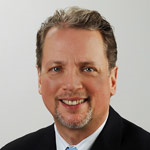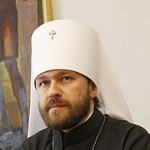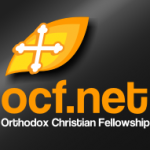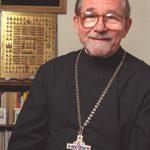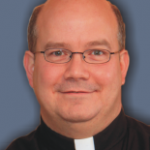
Deprecated: trim(): Passing null to parameter #1 ($string) of type string is deprecated in /home/aoiusa/public_html/wp-content/plugins/sexybookmarks/public.php on line 388
Deprecated: trim(): Passing null to parameter #1 ($string) of type string is deprecated in /home/aoiusa/public_html/wp-content/plugins/sexybookmarks/public.php on line 394
Deprecated: trim(): Passing null to parameter #1 ($string) of type string is deprecated in /home/aoiusa/public_html/wp-content/plugins/sexybookmarks/public.php on line 400
 Source: OrthodoxyToday.org
Source: OrthodoxyToday.org
Last night, like most of the world, I was captivated by the announcement that the President of the United States would be making a statement at 10:30 p.m. As I Tweeted this information, I added the line that this could not be good. Presidents do not often come on at 10:30 on a Sunday night to announce good news. So, like the rest of the world, I waited and watched the social media to try and find out what was going on. I will add a side note here that I almost went to bed!
News started to be leaked and then confirmed that the USA had killed Osama bin Laden in Pakistan and that they were working on identification. This was a military operation and no U.S. military personnel were harmed in this operation. I will admit, I, like many others in the U.S. and around the world, rejoiced at this news. Rejoiced at the news that bin Laden was dead and the news that no Americans were hurt or killed in the operation.
I watched as Twitter and Facebook lit up with news and reactions. (The interesting thing is everything went quiet as POTUS began speaking.) People were thanking God and military that justice had been served. But what are we Christians to make of all of this? How are we supposed to react and feel about all of this? Some of the folks I follow on Twitter started sending out Tweets that made it sound like them came from Fortune Cookies. (I have never liked using one passage of Scripture to try and prove a point.) But it did get me thinking, and thinking. I went to bed and listened to the news coverage on the BBC World Service and eventually drifted off to sleep.
So in the light of day I had to ask myself this question: How do we, as Christians, balance our relief that the mastermind behind so much killing is dead and the fact that a human life, created in the image and likeness of God, has perished? My Orthodox Christianity teaches that God does not rejoice when one of His children is lost. One of the folks on Twitter said that we Christians should feel sorrow that we did not do enough to convert him to Christianity. Well, I will not go that far but I do understand the sentiment. I also had to remind myself that it is not our job to judge — that is and should be left to God. Again, my Orthodox faith teaches that we are all sinners and we will all be judged for our actions.
I have said this before: Each and every human has been created in the image and likeness of God. Because of our creation in that image and likeness, we are not born evil. Evil is something we learn and is a byproduct of the fallen nature of humanity. Our actions are sinful and evil but humanity is not evil. As an Orthodox Christian I also believe in the power of confession and reconciliation. One of the hardest concepts for some people to come to terms with is the fact that if we are truly sorry and repentant; God will forgive all of our sins no matter how horrible. What an amazing and loving God we have!
The difficulty is in rejoicing over the situation at hand. Are we rejoicing because a man is dead or are we rejoicing because justice has been accomplished? I will say that if we are rejoicing because a man is dead then our rejoicing is misplaced. As Christians we should never rejoice at someone’s death, especially a death of one who is lost. Justice being served, however, is a different story.
We can rejoice that justice has been served for the thousands of people who were murdered because of the actions of this one man. I remember the anger I felt watching the events of Sept. 11 and how I wanted revenge, how I wanted those responsible to pay. It was a very dark day spiritually for many, many people, including myself. I will also confess that I am not sure how I felt last night when I heard the news, but it felt wrong that I was happy. A man was dead and I was happy. This was not right! If we give in to this kind of retribution then we are no better than those who committed the act. If we rejoice because this man is dead, then spiritually a small part of us has died as well.
During the Divine Liturgy we pray for those who love us and those who hate us. Praying for people who love us is easy, praying for those who hate us is difficult, if not downright impossible, but we have to do it. We are called to pray for every person not just the ones we like.
This past week we remembered the events leading up to the crucifixion of Jesus Christ. One of the most remarkable events took place whilst Jesus was on the Cross. He asked His Father to forgive those who had done this to Him! Think about it: Hanging on the Cross, Jesus asked God to forgive those who killed him. What an example He leaves for us. “Forgive us our trespasses as we forgive those who trespass against us.”
I am reminded of a Scripture passage from the Gospel of St. Matthew, “You have heard that it was said, ‘an eye for an eye and a tooth for a tooth.’ But I say to you, do not resist one who is evil … love your enemies and pray for those who persecute you” (Matthew 5:38-39, 44). Hard words to hear but it is good for us to be reminded of them from time to time.
So what is a Christian to do? How are we to respond to this? Well, first, as with anything, we need to pray. We need to pray for all those who have lost their lives the last few days and we need to pray for those who put their lives on the line. The killing of this man will not be welcome news to many people and our troops are in harm’s way. We need to keep all of this in the proper perspective, be happy that justice has been done but we cannot and should not rejoice in the death of anyone. If we truly respect human life, then all life is sacred, not just the ones we like. We also need to pray that we can make some sense of all of this.
So is it possible to be happy and sad at the same time? I believe it is. The very human emotion I was feeling last night was joy that he was dead. The very Christian emotion I am feeling today in the light of day is one of sadness that a life is lost and a feeling of relief that the one who brought terror to so many has been brought to justice. The rest of what I am feeling will just have to work itself out.
Fr. Peter-Michael Prebble is an Orthodox priest in the Romanian Orthodox Diocese of America.
Read the entire article on the Huffington Post website (new window will open). Reprinted with permission.
V. Rev. Fr. Peter-Michael Preble is the Pastor of St. Michael’s Orthodox Christian Church in Southbridge, Massachusetts and the host of the Shepherd of Souls syndicated radio program. Visit Fr. Peter’s blog.

